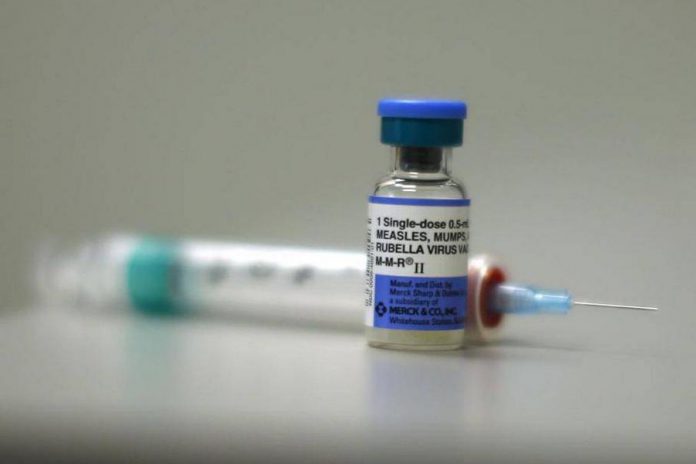
Peterborough Public Health has reported three confirmed cases of mumps in the Peterborough area.
“Mumps is circulating in our community, so we are asking residents to watch for symptoms and see their health care provider if they are feeling ill,” says Dr. Rosana Salvaterra, Medical Officer of Health. “It’s also important to follow good infection control practices to prevent its spread, such as ensuring you are vaccinated against mumps and not sharing objects like cups and eating utensils.”
There has been an increase in mumps cases and outbreaks this year in several parts of North America, including Ontario. While mumps has traditionally been a childhood disease, it has become more common among young adults, particularly among 18 to 35 year olds who may not have been sufficiently vaccinated as children.
The best way to prevent mumps is through the measles-mumps-rubella (MMR) or measles-mumps-rubella-varicella (MMRV) vaccine. Since use of the MMR vaccine was approved in 1969, the number of reported cases of mumps has decreased by more than 99 per cent.
However, two doses of the vaccine are required for maximum effectiveness. Some people now in their 20s and 30s may have only received a single dose of the vaccine as children.
While people born before 1970 are considered immune to mumps, Peterborough Public Health advises that anyone born after 1970 who has not previously been diagnosed with mumps should be appropriately immunized with two doses of the vaccine.
Mumps is a highly contagious viral disease that passes easily from person to person. The most common symptom of mumps is swelling of the salivary glands, which can make the cheek or neck bulge out on one or both sides.
Other symptoms of mumps include fever, headache or earache, tiredness, sore muscles, dry mouth, or loss of appetite. Sometimes the virus can cause more serious complications like hearing loss, swelling of other glands, encephalitis, or meningitis. Pregnant women who get mumps during the first trimester may have a higher risk of miscarriage.
Symptoms can be mild or severe, and generally last seven to 10 days. Many people who get infected with the mumps virus experience very mild symptoms or not be sick at all. However, they can still spread the disease to others. So it is important for everyone to be vaccinated against mumps. A person with mumps can spread the infection from seven days before to five days after they develop symptoms.
The mumps virus can be spread in several different ways including direct contact (such as kissing an infected person), through the air (such as when an infected person coughs, sneezes, or talks), or by touching objects that were recently exposed to infected mucus or saliva (when someone else touches the same surface and rubs their eyes, mouth or nose).
While people who are vaccinated against mumps can still get the disease, they are likely to have a milder case than an unvaccinated person. There is no treatment for mumps.
Peterborough Public Health recommends that anyone who is not fully vaccinated see their healthcare provider or, if they don’t have one, to call the health unit at 705-743-1000, ext. 129 to get up to date and fully protected.
The vaccines are part of the publicly funded vaccine schedule and are offered free to all people in Ontario. The mumps vaccine is required for children to attend school in Ontario and for children attending a daycare centre, unless they have a valid exemption. Vaccination is also publicly funded for adults, if they have never had mumps or been vaccinated.


























